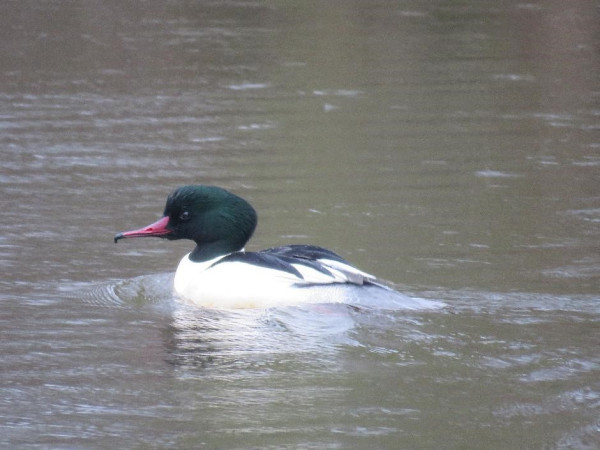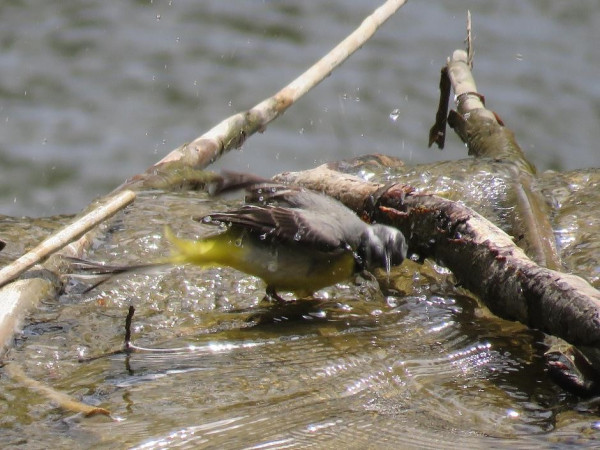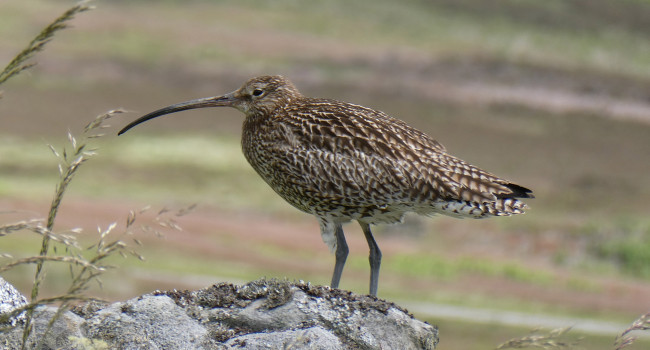
My Patch: A Lockdown Gift
Throughout my third lockdown, I decided to exercise along my local canal for the first time. Just less than half a mile away from my house - and wow, I wish I had explored it sooner!
Being limited in travel, I turned to the River Don as a ‘last resort’ to see nature. It was a big surprise to find myself watching Herons, Cormorants, Kingfishers and even male and female Goosanders, swimming under the surface. I felt like I had been given a gift; there is nothing better than watching a beautiful male Goosander fishing.

For me, they really are truly special with their glowing white bodies and glossy black heads, reflecting a green glaze by the trick of the light. Their long, serrated bill helps them to catch and hold their slippery fish prey. My first encounter with this bird was in 2018 at a country park on holiday in North Yorkshire, so to see one that isn't 49 miles away and is instead just a stone throw away is incredible.
Further along my stroll, I was even more delighted to witness a Barn Owl foraging for food whilst being mobbed by a dominant Kestrel. Nature is priceless and cannot be bought!
Glancing through my binoculars I saw a black and white bird, very distant from where I was standing. It had a small, long tail and was making a clear bobbing movement. As I finally managed to walk closer I could see that this was a beautiful Pied Wagtail.
They allow you plenty of time to watch and study as they often rest on rocks around rivers, and they seem to love urban areas, nesting in walls between the stones. There needs to be enough food - such as flies, midges and spiders - to feed their offspring of two broods, and the River Don looks to be providing a good supply for them. So always remember: if you are going for a walk and happen to come across a Pied Wagtail, the clue is in the name.

A relative of the Pied Wagtail is the Grey Wagtail: they are very easy to spot, standing out with a slate grey head and back, and a lemon yellow underneath. Making my way back home - it was starting to get dark and very cold - I heard a distinctive call and turned sharply to look at the weir. It was flowing very fast, and the murky water was splashing harshly, but in the middle, taking a bath, was the Grey Wagtail! Unfortunately, these birds have declined a lot over the last 20 years, so if you are fortunate to see one, spend a little time watching them, just like I did.
To see these incredible birds around me came as a big surprise due to the surrounding area. The River Don is situated between a big industrial estate, connected to railway lines, steelworks and has been home to big factories for many years now. It was navigable to Rotherham in 1726, flowing through the coal mining town and passing by traditional industries like glass making, flour milling and the steel industry that still operates today.
The river became terribly polluted, and unable to sustain life. In 1994 local naturalists and organisations began to take action, and by 1996 life on the River Don had just begun!
So to find wildlife living around the Don really is overwhelming. It has taught me that birds are all around us and I don't have to travel miles to see them. But aside from that, it goes to show how versatile these birds are, and how they can adapt to their surroundings. They have made these industrial, noise-polluted areas home, and are able to find food when they need it most.
The River Don travels for 70 miles through Rotherham, Sheffield, Doncaster, right the way through to Stainforth. After being brought up with it on my doorstep, only now have I begun to appreciate it. Being fed up with my surroundings in lockdown led me to discover these industrial residents, and from now on, I’ll be visiting my local patch more often.








Share this page